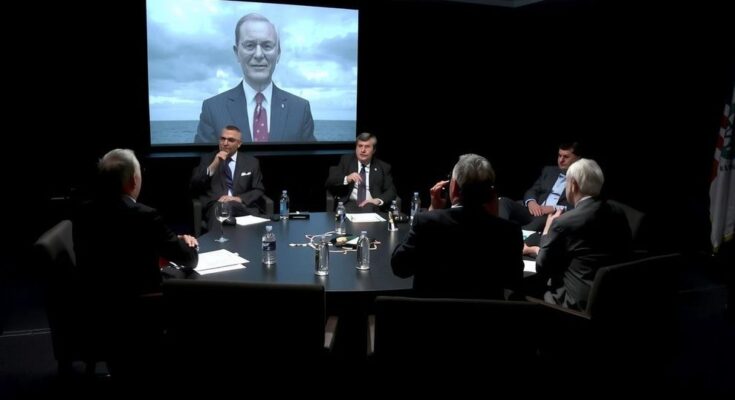The reelection of President Trump is likely to lead to significant changes in U.S. energy and climate diplomacy, including a withdrawal from the Paris Climate Agreement and possible exit from the UNFCCC. The article discusses alternative strategies Trump may adopt, which involve using current treaty memberships for bargaining on unrelated diplomatic issues. There is also concern about the dismantling of federal climate policy infrastructures, necessitating new advocacy approaches from academics and policy leaders.
The recent re-election of President Donald Trump will have significant implications across various policy domains, particularly in energy and climate diplomacy. As in his previous term, one can anticipate a prompt withdrawal from the Paris Climate Agreement, echoing his prior actions from 2017. Although the Paris Agreement relies on Nationally Determined Contributions, Trump’s administration may still perceive it as an impediment to U.S. economic interests, reinforcing his narrative against global climate agreements.
In addition to withdrawing from the Paris Agreement, there are discussions among Trump’s aides regarding the possibility of exiting the United Nations Framework Convention on Climate Change (UNFCCC). Such a move could potentially allow countries like China to take the lead in clean energy diplomacy, while the U.S. may find itself at a significant disadvantage. However, a strategic alternative would be to leverage U.S. participation in these agreements to negotiate non-climate-related diplomatic concessions, akin to tactics seen in Chinese diplomacy.
Furthermore, it is expected that the new administration will also dismantle key federal offices responsible for climate policy, including the Special Presidential Envoy for Climate role established by President Biden. This transition could lead to a redirection of focus towards more immediate national security concerns over climate initiatives. As a result, dialogues regarding climate action may shift predominantly to corporate and subnational levels rather than federally led initiatives.
Ultimately, academics and policy leaders will need to adapt their strategies to advocate for climate action amid a potentially unsympathetic administration. It may also become more viable to push for stringent sanctions against geopolitical adversaries under a Trump administration, possibly achieving more decisive outcomes compared to previous engagements. As the political landscape evolves, it is crucial to articulate strong arguments in favor of energy security and international collaboration.
The article addresses the anticipated energy and climate policies under President Donald Trump’s re-elected administration. Given his history of criticizing international climate agreements, the piece outlines possible scenarios, including withdrawal from the Paris Climate Agreement and the UNFCCC, which could undermine U.S. climate leadership. It also suggests alternate strategies for maintaining diplomatic engagement while pivoting towards non-climate-related concessions, as well as expected shifts in federal climate policy infrastructure under Trump’s governance.
In conclusion, the re-election of President Trump signals a return to a previous political stance where energy and climate diplomacy may take a backseat to national security and economic interests. Anticipated withdrawals from key international agreements could reverse progress in U.S. leadership on climate issues. Nonetheless, alternative diplomatic approaches could be explored, focusing on leveraging existing commitments for broader geopolitical gains. Advocating for energy security remains vital for both national interests and international collaborations in addressing climate change.
Original Source: kleinmanenergy.upenn.edu




